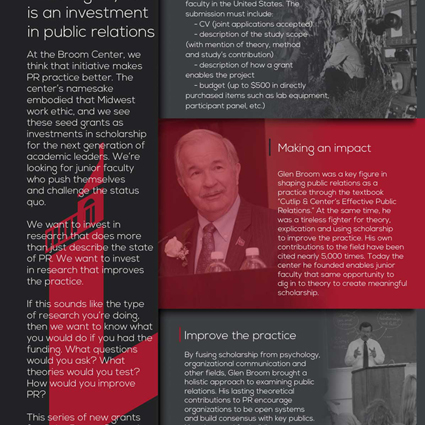How PR Can Push Back Against False Claims
 Fake news. Alt facts. Misinformation. Rumors. False claims. Disinformation. Post-truth.
Fake news. Alt facts. Misinformation. Rumors. False claims. Disinformation. Post-truth.
Many say the reason it is such a problem all comes down to media literacy.
A Stanford report paints a bleak picture of media literacy among digital natives. The researchers studied middle school, high school and college students for 18 months. Students understood what a traditional banner ad online looks like. But, they couldn’t tell the difference between sponsored content like native ads (designed to look like a news story) or real news stories. That “sponsored content” label in the native ad didn’t do much to clear it up for students. The research team said that digital natives were easily duped by slick, professional websites or .org addresses.
This inability to assess content quality can lead to being susceptible to disinformation.
According to the 2019 Institute for Public Relations Disinformation in Society Report, more than half of Americans view disinformation as a “major” problem in society. Their perception of disinformation is on par with gun violence (63%) and terrorism (66%). Almost half point to fake accounts (45%) as the origin of the problem.
PR needs to get woke on how to fight this problem.
The Study of Disinformation
The issue goes beyond election meddling and Russian trolls. Organizations are somewhat used to dealing with rumors, but disinformation takes the rumor mill in your crisis communication plan to the next level. A fear for public relations practitioners is that a malicious disinformation campaign could decrease publics’ brand trust.
A massive round-up of academic research on disinformation signals public relations may have trouble truly debunking disinformation completely. Later research used those findings to test specific elements in how to refute false information and even what phrases work. All of this research brings PR practitioners closer to a set of best practices in combatting misinformation:
- There is no harm in repeating disinformation in order to push back against it
- Corrections with counterarguments pushing back on disinformation can lead to debunking (saying more than simply “X is not true”)
- Saying “the truth is” when starting a counterargument is effective
- Refuting the false claim in a fact-focused push back reduces lingering effects
- Fast corrections within 1 day of the false information enable PR to use shorter messages to debunk (there is less of a need for detailed counterarguments), but without a quality refutation then the false information may easily be believed again later
- It is harder to debunk false claims after people start to create reasons to support the disinformation
- If your counter argument is too detailed it actually has the opposite effect and disinformation lingers
- Correcting the record and repeating the false claim will not spread the misinformation to new audiences; rebuttals consistently and successfully debunk misinformation even for people who only hear the false claim at the rebuttal stage
Have No Fear, Public Relations is Here
Aside from how we represent our organizations in recovering from an attack of disinformation, the practice of public relations can take initiative too. As an industry, we can help society be more critical about information and serve as a resource for trusted information.
- Adhere to a code of ethics. Truth is the foundation of the profession, and the very concept being manipulated.
- Immediately correct the record when false information starts to spread.
- Look for ways to contribute to media literacy and verification programs. Your organization might share media literacy skills with employees as part of your internal communication program. Your website might participate in a third-party content verification system used in your industry. Run verified accounts on social media, and monitor for any fake accounts pretending to be your brand.
The Broom Center’s third annual Allen H. Center Distinguished Lecture in Public Relations this spring will dig in deep on the impact of disinformation on the entire media industry – from journalism to public relations. Join us on March 10, 2020 when CNN’s John Kirby comes to San Diego State University to speak in this free and open lecture series.

